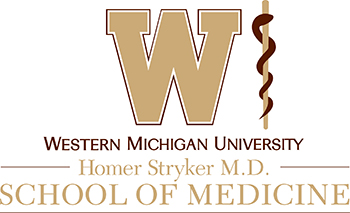
When she talks about her duties as director of Financial Aid at WMed, Cathy Jones discusses her role in simple, but important, terms – to help each student achieve the dream of becoming a doctor and leave medical school with as little debt as possible.
“We’re very conscious that students take out loans for an education that is very important to them and this is where they want to be,” Jones said. “So, anything we can do to mitigate their overall debt is important to us.”
With that in mind, Jones said the number of scholarships – including endowed scholarships and merit- and need-based offerings – have grown at WMed as the medical school has matured as an institution.
Currently, more than 50 percent of students at WMed, including MD students and students in the Master of Science in Biomedical Sciences Program, have received some type of scholarship funding.
“That’s a significant number,” Jones said. “We’re impacting more students and those scholarship funds are being distributed among more students, as opposed to just a few.”
For each of last two academic years – 2018-2019 and 2019-2020, scholarship funding was distributed to more than 200 recipients at the medical school. The scholarships included a mix of merit- and need-based awards, as well as scholarships from the medical school’s array of endowed scholarship funds. Students in the Master of Science in Biomedical Science Program each receive a full-tuition scholarship from the medical school to cover the cost of the one-year program.
Merit-based scholarships are used to recognize outstanding medical students who have excelled academically or exemplified significant leadership or attributes aligned with the WMed mission. Need-based scholarships help the medical school ensure that a medical education is achievable to students from all segments of our society. The medical school intentionally recruits students from low socioeconomic backgrounds, in part to ensure diversity among students and at the medical school. Currently, 28 percent of our medical students are from lower socioeconomic family backgrounds, compared to constituting 15 percent of the population of Southwest Michigan.
Jones said that criteria for merit- and need-based scholarships are set forth by the medical school’s Student Scholarship Committee, a body that oversees the awards process for all scholarships and other financial awards. The criteria set by the committee is then used by the Office of Financial Aid to determine which students will be named as recipients, Jones said.
Merit- and need-based scholarships make up the majority of financial awards that have been given to WMed students since the medical school welcomed its inaugural MD class in 2014. However, endowed scholarship funds at the medical school continue to grow. Most recently, a fundraising campaign prior to the 4th Annual Imagine Gala in 2019 raised $550,000 for the Miller Family Endowed Scholarship Fund. Beginning next year, the endowment will provide medical school scholarships for students from Southwest Michigan, with preference given to Kalamazoo Public Schools graduates who successfully completed the medical school’s Early Introduction to Health Careers pipeline program.
The Miller Family scholarship fund is one of several endowed scholarship funds at WMed. The other funds include:
- The Peter H. Capelli Scholarship
- The Dean’s Endowed Scholarship
- The John M. Dunn Endowed Scholarship
- The James R. Ryan Family Foundation Scholarship
“While the financial costs of a medical education shouldn’t be the limiting factor for students, for many of them it can be a major obstacle,” Jones said. “But there are several opportunities for our students to reduce the overall cost of their education through internal and external scholarship opportunities.”
